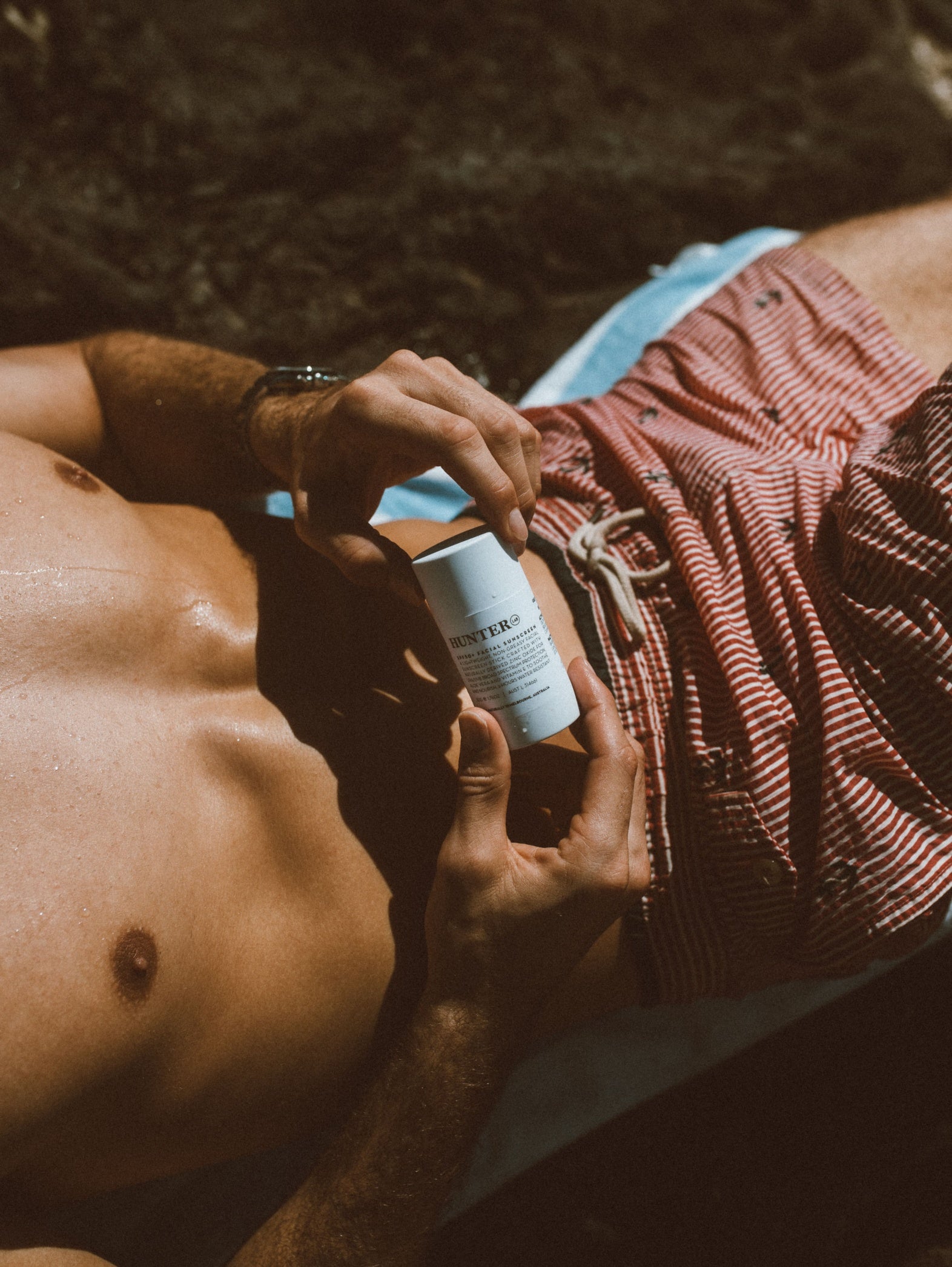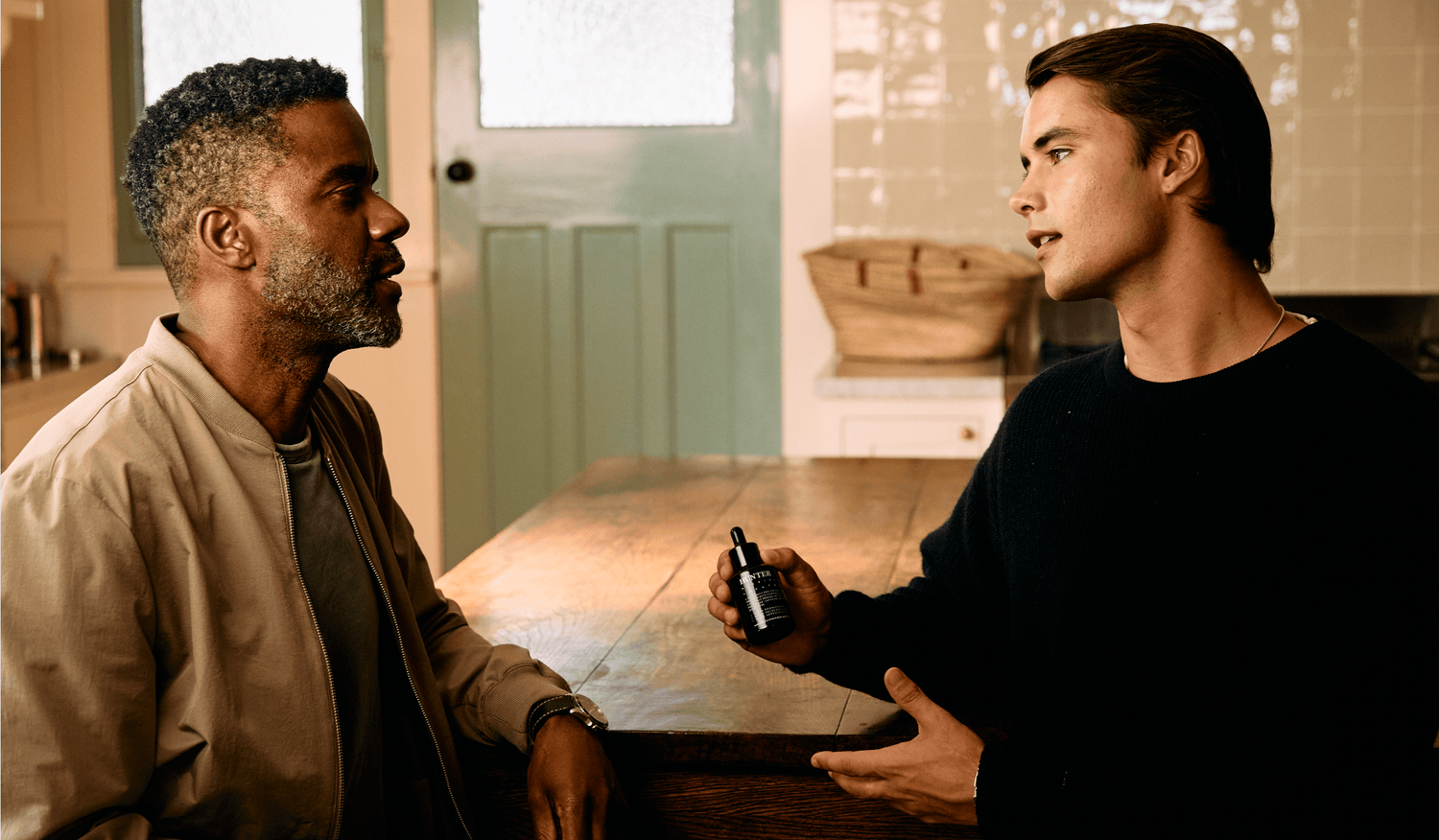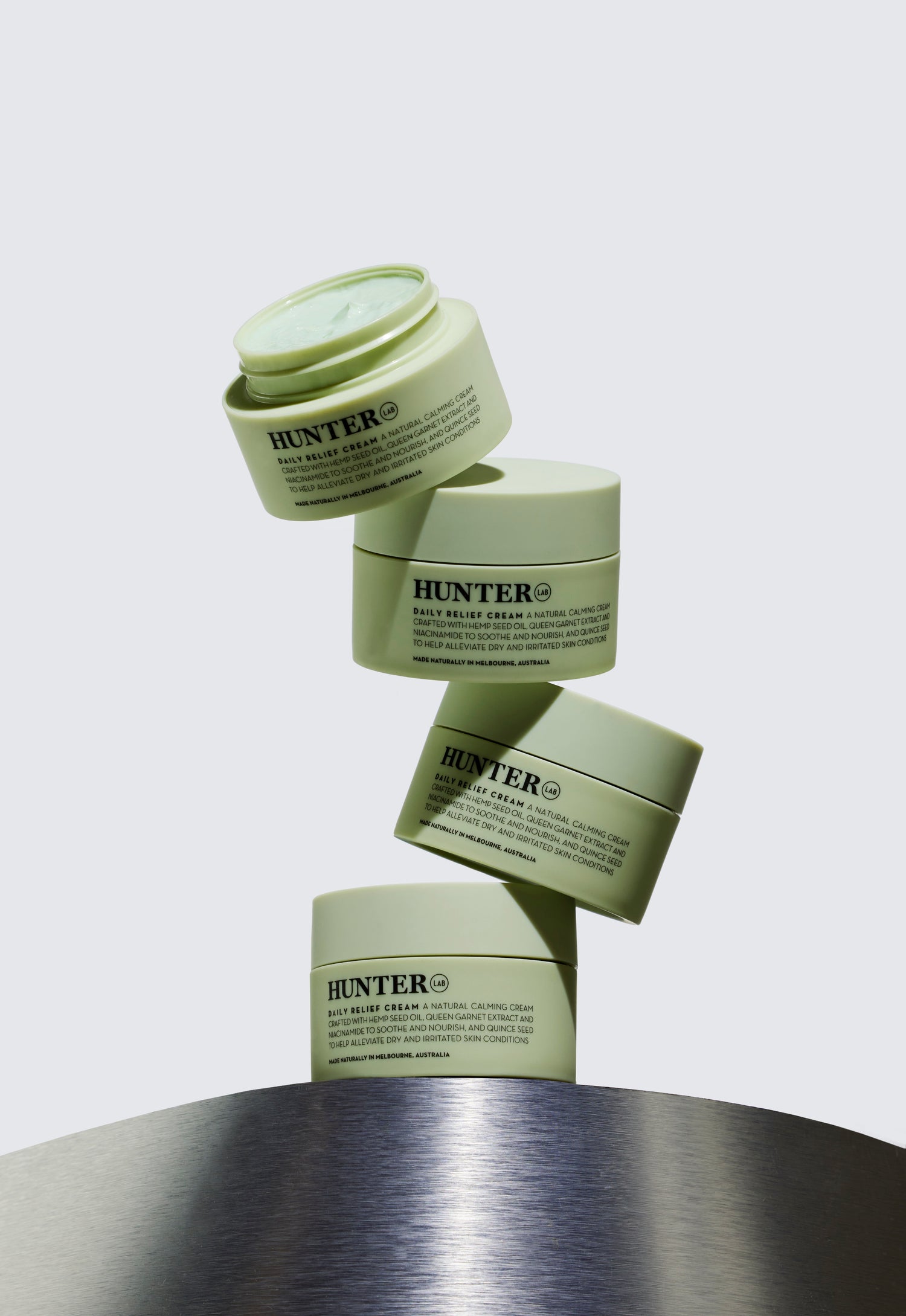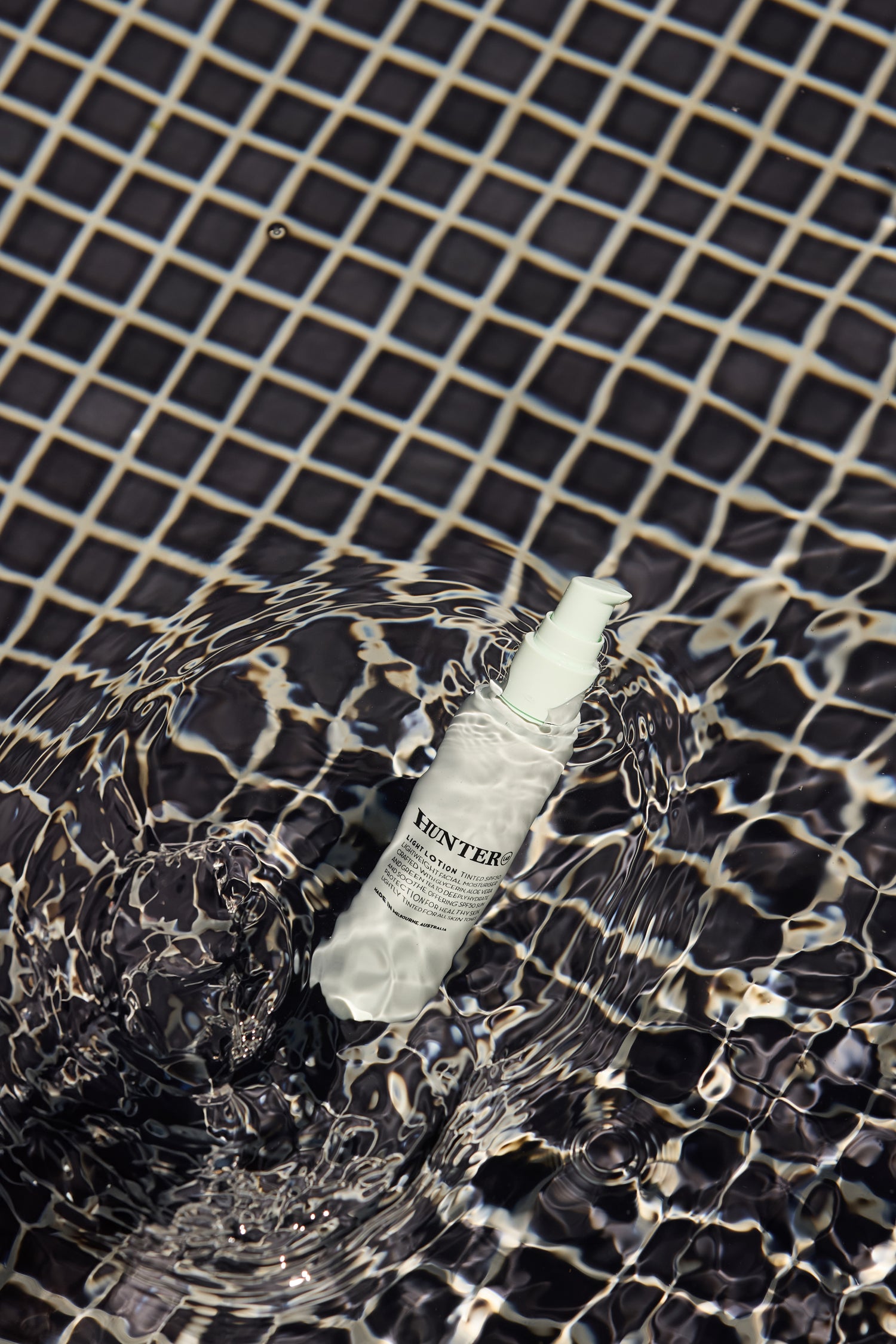Thanks to Australia’s unrivalled islands, beaches, lakes and creeks, and the country-wide outdoors culture that has developed as a result, the words “Australia” and “sun” have become synonymous with one another.
However, due to this outdoors-focused lifestyle, Australia is now the skin cancer capital of the world. In Australia, cancer causes more deaths than transport accidents annually, and at least 2 in 3 Australians will be diagnosed with skin cancer in their lifetime.
With this in mind, it is incredibly important to protect your skin–especially during full days spent under the harsh Australian sun. But should you wear sunscreen everyday? How does sunscreen actually work? And what does SPF actually mean?
Read on to discover why you should wear sunscreen daily, as well as other precautions you can take to protect against sunburn, skin cancers and premature ageing.
Why you should wear sunscreen everyday.
Prevents sunburn
The most obvious reason as to why you should wear sunscreen everyday is because it prevents your skin from burning. Sunscreen provides a barrier between your skin and the sun’s rays, and when this barrier is not there, you are at an increased risk of burning. Sunburn is essentially your skin cells in distress, and is one of the leading causes of skin cancer in Australia.
Protects against skin cancers
Sunscreen helps to protect against skin-damaging effects of UV rays, and has been proven to reduce the occurrence of both melanoma and nonmelanoma skin cancers. On its own, wearing sunscreen will not fully protect you against UV radiation and prevent you from developing skin cancer, though it is one of the many precautions you can take to help in this regard.
Fights premature ageing
Sunscreen also helps to fight premature ageing. According to one study, regular sunscreen use helps to prevent against certain ageing effects of sun exposure, including wrinkling, spotting and loss of elasticity.
What does SPF mean?
You would’ve seen the letters SPF on most, if not all, of the sunscreen bottles to choose from on your local supermarket shelves. But what do these letters actually stand for? SPF stands for Sun Protection Factor, and essentially measures the level of UVB (Ultraviolet B) protection a sunscreen has.
Essentially, as long as it is applied properly and generously, the higher the SPF level of a particular sunscreen, the more sun protection you’ll get. SPF30+ is adequate, though SPF50+ is best. It is also recommended that you choose a broad spectrum sunscreen, which will essentially filter both UVA and UVB rays. UVA/UVB broad spectrum sunscreen offers the highest sun protection currently available on the market.
Hunter Lab’s SPF50+ Facial Sunscreen is a lightweight, non-greasy facial sunscreen made with natural zinc oxide for UVA/UVB broad spectrum protection, as well as Aloe Vera and Vitamin E to soothe and nourish. It is 90% naturally-derived and designed for optimal skin health and skin protection, and will keep your skin protected, naturally.
The all-natural ingredients have been specifically chosen for their effectiveness, both in their ability to protect against UV damage whilst also nourishing and soothing the skin. Hunter Lab’s sunscreen also has a cashmere-like feel that gives the skin a smooth, radiant finish, and is ideal to use every day of the year due to its lightweight, breathable texture.
How does sunscreen work?
The ingredients in sunscreen–titanium dioxide or zinc oxide, and chemical absorbers– work together to prevent the sun from damaging your skin. The first sits on the skin’s surface and deflects UV rays, and the latter forms a protective film that absorbs the UV radiation.
What is UVA and UVB?
There are two types of ultraviolet (UV) radiation that have been proven to contribute to skin cancer: UVA and UVB. Ultraviolet A (UVA) is associated with skin ageing. UVA penetrates deep into the skin and results in a tan, though damages the collagen and elastin in the skin in the process. Ultraviolet B (UVB) damages the top layers of the skin. In the process of UVB damaging the skin cells, it causes DNA mutations that can eventually lead to skin cancer.
Where to apply sunscreen.
Sunscreen should be applied to all exposed areas of your body, from the face to the legs. It is also important to remember to apply sunscreen to the lesser-thought-of areas of the body, including the ears, hands, feet and neck. Everyone, regardless of skin colour and lifestyle, should apply sunscreen everyday.
How much sunscreen to apply.
Use sunscreen generously. With sunscreen use, more is more. The general rule of thumb here is a teaspoon per limb, as well as a teaspoon for the face, front and back respectively. Seven teaspoons of sunscreen every two hours to the entire body should provide you with adequate sun protection when outside, however remember to apply more frequently if engaging in rigorous exercise or towelling off frequently.
How often to reapply sunscreen.
There is a common misconception that one application of sunscreen will last you the entire day, however this is incredibly inaccurate. Sunscreen should be reapplied every two hours, or even more often if you are engaging in more rigorous physical activities like exercising or constant swimming, as well as if you are consistently towelling off.
How to choose the right sunscreen for you.
When choosing a sunscreen, you should consider:
- The lifestyle you lead
- The kind of activities you generally do when in the sun
- How long you spend outdoors
- How often you can reapply
- The general sun protection you get on a daily basis
However, as a general rule of thumb, the higher the SPF of a sunscreen, the better.
What else you can do to protect your skin.
Wear protective clothing and seek shade
Along with applying sunscreen everyday, you should also wear a hat (preferably a wide-brimmed hat that covers your ears, neck and shoulders), protective sunglasses and sun-protective clothing when in the sun, as well as remain in the shade if and when possible.
Get regular skin checks
You should also ensure you’re getting regular full skin examinations to check for any recently developed moles, freckles and, ultimately, skin cancers. With this in mind, it is recommended that you get a full skin examination once every six months.
Tint your windows
Yes, you can still get sun damage when driving, and having tinted windows can significantly reduce the amount of UV rays that are transmitted into the vehicle
Regardless of your lifestyle, you should wear sunscreen everyday – especially if you live in Australia, aka the skin cancer capital of the world. Wearing sunscreen daily is one of the best things you can do to prevent sunburn, protect against skin cancers and fight the signs of premature ageing.
Regular and generous sunscreen application; wearing a wide-brimmed hat, protective sunglasses and a protective shirt; staying in the shade if and when possible; and getting regular skin checks are the best ways you can provide your skin with ultimate protection against the sun.
So, apply sunscreen everyday. Baz Luhrmann’s iconic sunscreen song even puts sunscreen use at the top of the “future advice” list. If you don’t take it from us, take it from Baz.
UPDATE: The SPF50+ Facial Sunscreen is no longer available



